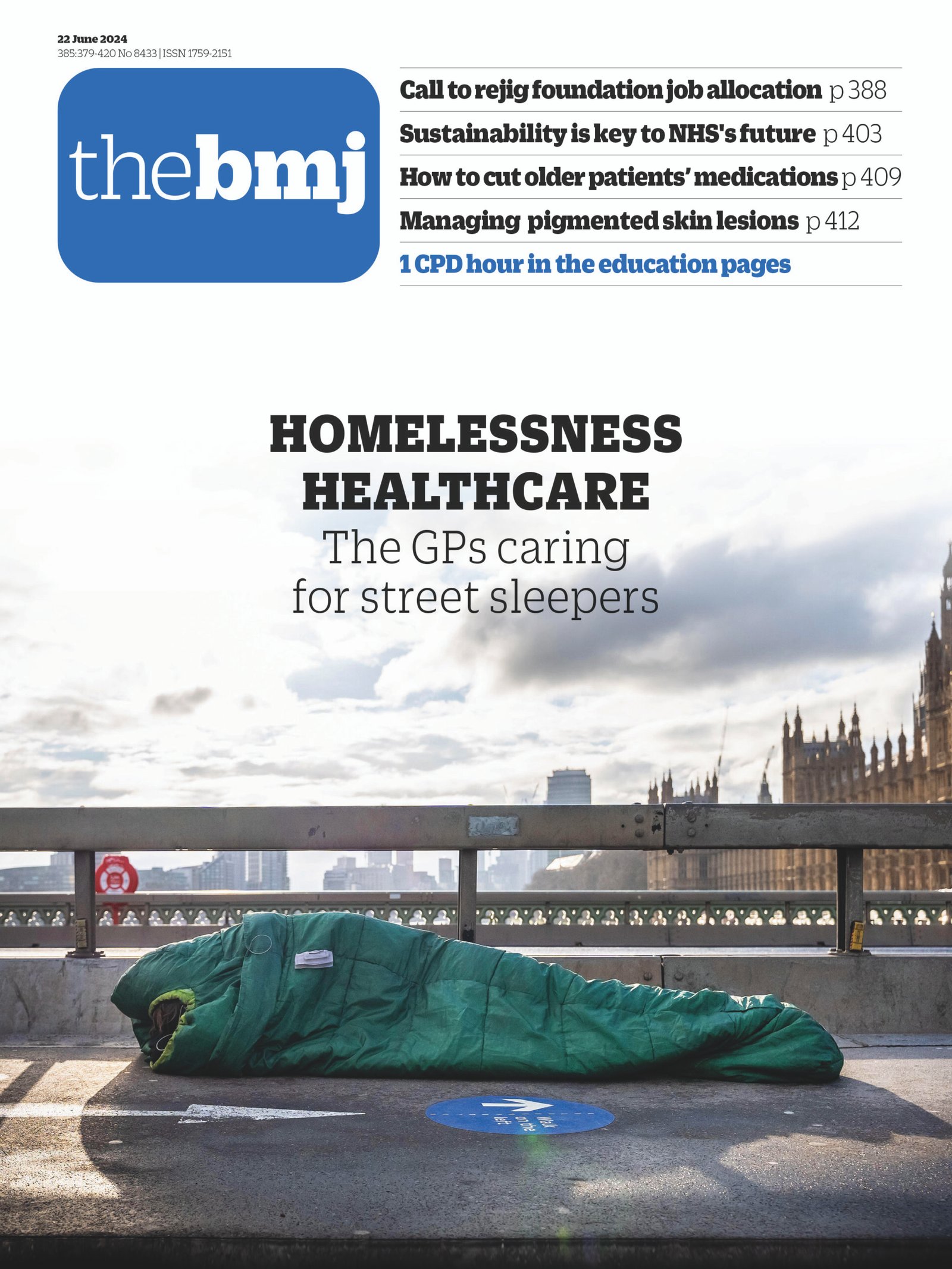General practices should stop recruiting physician associates (PAs) immediately until regulation and scope of practice guidance is finalised, the Royal College of General Practitioners (RCGP) has said.
The college issued the warning after analysing the results of 5112 GPs who responded to a consultation sent to all 54 000 college members,1 which found that half of GPs had seen examples of patient safety being compromised by the work of PAs.
Overall, the consultation concluded that all UK practices should review their recruitment plans and halt the additional recruitment and deployment of PAs into general practice until they are regulated and practices can implement the RCGP’s forthcoming guidance on scope of practice, induction, and supervision, which it hopes to publish by the end of the year.

The BMA has already called for a recruitment freeze of medical associate professionals, which includes PAs, owing to patient safety concerns. Last month the BMA published the first guidance for doctors who supervise PAs and other medical associate professionals,2 following on from its publication of the first national guidance on how MAPs should work safely.3
On 17 June the Royal College of Physicians said that it had written to an NHS organisation to raise concerns about the language used on its posters to describe physician associates as physicians. The Royal College of Physicians, which currently hosts the Faculty of Physician Associates, said that the false use of the protected title of “physician” was illegal, irresponsible, and unsafe.
Interim recommendations
Responses to the RCGP consultation indicated wide variability in the way PAs were currently deployed, inducted, and supervised in general practice, and respondents suggested that processes were not sufficiently robust.
Half (50%; 2556) of the GPs who responded said that they were aware of specific examples of patient safety being compromised by the work of PAs. Examples included misdiagnosis and diagnostic errors, inappropriate prescribing and management, and a lack of communication to patients and GPs.
PAs were often dealing with serious cases, as 60% (1669) of respondents with experience of working with PAs said that those at their practice acted as the first point of contact for potentially serious conditions. Only 25% (696) of the 2782 respondents with experience of working with PAs said that they all had an annual appraisal. Similarly, 25% (696) of all responding GPs with experience of working with PAs said that no time was scheduled for regular supervision of PAs.
As the RCGP acknowledged that some general practices were already working with PAs, it issued interim recommendations, including:
-
Ensuring that appropriate time for supervision is included in GPs’ and PAs’ daily timetables;
-
Reviewing processes of triage, induction, and supervision to ensure that these are robust and safe for patients; and
-
That PAs should not see patients who have not been triaged by a GP and should undertake work only if delegated to them by and agreed with their GP supervisor.
The college also called for regulation of PAs to proceed as soon as possible, and while it believed that a regulatory body other than the General Medical Council (GMC) would be more appropriate to do this, it recognised that GMC regulation was well advanced and now in legislation, so the college would work with the GMC on this issue.
Kamila Hawthorne, RCGP chair, said that the fundamental issue was patient safety and maintaining the high standards of general practice.
“We understand that the picture emerging from these results is disturbing and will be of concern to many, including patients, GPs, and physician associates themselves,” she said. “Our intention is not to disparage the individuals who are working as PAs in general practice or their profession, but to address and act on the concerns that more and more of our GP members have been raising.”
Hawthorne emphasised that the RCGP’s survey included reports of instances where the PA role was working well, but it added, “It is clear that there is not a sufficiently robust framework for supervision and scope of role in place in GP practices, and this is having implications for patient safety.”









